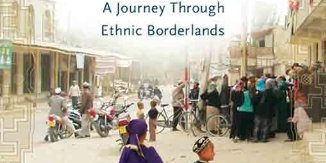Traveling more than 14,000 miles by bus and train to the farthest reaches of China, the authors of this narrative explore the minority peoples who dwell there, talking to farmers in their fields, monks in their monasteries, fishermen on their skiffs, and herders on the steppe. Closely observing daily life in these remote regions, they document the many lifestyles and adventures of the Chinese natives—they visit an old Catholic fisherman at a church that has been without a priest for 40 years; they hike around high-altitude Lugu Lake to farm with the matriarchal Mosuo women; and they descend into a dry riverbed to hunt for jade with Muslim Uyghur merchants. This account uncovers surprising truths about China’s hidden minorities and their complex position in Chinese society through real discussions, including a heated debate with Ewenki village cadres on human rights and talks with aging hajjis about the Chinese government’s razing of their mosque.
“Students of Chinese and other Asian languages, Legerton and Rawson took their linguistic skills to the geographic periphery of China in 2006 and again in 2007. They sought members of the country’s non-Han minorities to learn about their lives, paying attention to their attitudes toward the majority Han. Upon arrival in some obscure town or village, they asked for a good place to eat, a query that yielded productive encounters with people and their cuisine as well as with local sites significant to them. As they narrate this method of introducing themselves, Legerton and Rawson interject explanations of policies, historical and current, of the central government toward ethnic minorities, such as religious persecution during the Cultural Revolution. They heard complaints about the Han, but making a livelihood was the predominant concern they discovered among Koreans, Mongolians, Uyghers, and several other of China’s 50-plus officially categorized ethnicities. Seemingly unfazed by rough accommodations and unusual foods, Legerton and Rawson eschew flourishes and hew to description in imparting their experiences for travel readers intrigued by China’s remote regions. –Gilbert Taylor”







